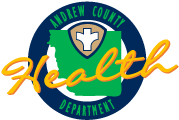Blog

The Andrew County Health Department provides various health screening services to help residents monitor their health status. These screenings are designed to detect potential health concerns early and provide information that individuals can discuss with their healthcare providers. What Are Health Screenings? Health screenings are basic tests or checks that can identify potential health concerns. These screenings are not diagnostic tests and do not replace visits to primary care providers. They serve as preliminary assessments that can indicate whether further medical evaluation may be warranted. Available Screening Services The Andrew County Health Department offers several types of health screenings including blood pressure checks, vision and hearing screenings, STD and HIV testing, tuberculosis testing, and blood sugar and cholesterol screenings at special events. These screenings are conducted by trained public health professionals in private settings, with results typically available during the visit or within a few days for laboratory tests. Screening Process Each type of screening follows specific procedures. Blood pressure screenings involve using a cuff to measure blood pressure, which takes approximately one minute. Vision screenings test visual clarity using eye charts. STD testing may involve collecting samples such as urine or swabs for laboratory analysis, with confidential results provided within a few days. Hearing screenings use headphones to test hearing range across different sound frequencies. Most screenings require minimal preparation and no extensive paperwork. Individuals who receive results indicating potential concerns are provided with referral information for follow-up care with healthcare providers of their choice. Privacy and Confidentiality All screening services follow strict public health privacy standards. Personal health information and results are shared only with the individual being screened. This confidential approach is particularly important for sensitive services such as HIV or STD testing, which are provided in a supportive, non-judgmental environment. Screening Locations and Events The Andrew County Health Department conducts screenings at their office location and participates in community outreach events throughout the year. These outreach activities may include local school events, community health fairs, back-to-school events, workplace wellness programs, and mobile clinics in rural areas. Information about upcoming screening events and locations is available on the health department's website and social media channels. Preparation for Screenings Most screenings require minimal preparation. General recommendations include wearing clothing with short sleeves for easy access during blood pressure or tuberculosis testing, bringing a list of current medications, avoiding caffeine before blood pressure screenings as it may temporarily affect readings, and bringing identification if requested, though most screenings are open to all residents. Individuals with specific questions about preparation can contact the health department in advance. Accessibility and Cost Many screening services are available at no cost or low cost to residents. These services are generally accessible to the public regardless of insurance status. Some screenings operate on a walk-in basis, while others may require scheduling. Contact information and availability details can be obtained by calling the health department. Community Health Impact Health screenings contribute to community health monitoring by helping identify health trends and needs within the population. This information assists public health officials in developing appropriate community health programs and responses. Contact Information For information about upcoming screening events, scheduling, costs, and specific screening services, visit andrewcountyhealth.com or contact the Andrew County Health Department directly. Current screening schedules and locations are regularly updated on the department's website and social media platforms.

The Andrew County Health Department conducts routine food safety inspections to help prevent foodborne illnesses and ensure food service establishments comply with local and state health regulations. These inspections are part of the department's environmental health services that protect public health in the community. Purpose of Food Safety Inspections Food safety inspections are routine visits conducted by trained environmental health specialists to verify that food service establishments follow regulations for safe food handling, sanitation, and hygiene practices. These inspections help identify and address potential food safety issues before they can affect public health. Types of Establishments Inspected Food safety inspections cover various types of food service operations including restaurants and cafes, food trucks and mobile vendors, school cafeterias, grocery stores and deli counters, temporary food booths at fairs or events, and church or nonprofit kitchens that serve the public. Any establishment that serves food to the public is subject to periodic inspections to ensure consistent safety practices across all food service environments. Inspection Components During inspections, environmental health specialists evaluate several areas related to food safety based on the Missouri Food Code. Inspection items include proper food temperatures for storage and cooking, cleanliness of food preparation areas and equipment, handwashing stations and employee hygiene practices, proper labeling and storage of chemicals, pest control and facility maintenance, dishwashing and sanitizing procedures, and safe food handling and cross-contamination prevention measures. Each inspection follows a standardized checklist, and inspectors provide written reports documenting observations and any violations found. Types of Violations Violations are categorized as either non-critical or critical. Non-critical violations, such as missing paper towels at handwashing stations or unlabeled cleaning supplies, can often be corrected immediately during the inspection. Critical violations involve more serious food safety risks, such as improper food temperatures or pest issues. These violations require follow-up inspections and, in severe cases, may result in temporary closure until the problem is resolved. The health department works with establishments to ensure violations are corrected promptly and properly. Public Health Impact Food safety inspections help prevent foodborne illnesses that can particularly affect vulnerable populations including young children, older adults, and individuals with compromised immune systems. Regular inspections help identify and correct food safety risks before they can cause illness outbreaks. Consumer Role in Food Safety Residents can contact the Andrew County Health Department to inquire about inspection reports or report food safety concerns. Public records for inspections may be available upon request. Event organizers working with food vendors can coordinate with the health department to ensure safety regulations are followed. Additional Food Safety Services Beyond inspections, the Andrew County Health Department provides food handler training and certification, plan reviews for new or remodeled food establishments, temporary food permit assistance for events, consultations for safe food handling practices, and resources on Missouri Food Code updates and guidelines. These services support food service operators in maintaining compliance with safety regulations while operating their businesses. Contact Information For information about food safety regulations, inspection reports, or food service operator resources, contact the Andrew County Health Department or visit andrewcountyhealth.com. The environmental health team provides support for food safety compliance throughout Andrew County.

Emergency situations can occur with little warning, making advance preparation essential for protecting your family's safety and well-being. The Andrew County Health Department provides resources and guidance to help residents prepare for various emergency scenarios that may affect our community. Common Emergency Situations in Andrew County Andrew County residents may face several types of emergency situations, including tornadoes, flash floods, ice storms and power outages, disease outbreaks, heat waves, and hazardous material incidents. Understanding these potential risks helps families prepare appropriately for local conditions. Building an Emergency Supply Kit An emergency supply kit should contain essential items to sustain your family for at least 72 hours. Basic supplies include bottled water (one gallon per person per day), non-perishable food and manual can opener, flashlight with extra batteries, first aid kit, phone chargers and power banks, weather radio, personal hygiene items, medications and medical supplies, extra clothing and blankets, copies of important documents, and cash in small bills. Customize your emergency kit based on the specific needs of household members, including infants, seniors, pets, or individuals with medical conditions requiring special supplies. Creating a Family Emergency Plan A family emergency plan should address key elements including escape routes from your home and neighborhood, designated meeting locations both near your home and outside your immediate area, emergency contact information with phone numbers memorized by all family members, and communication methods for staying in touch if separated during an emergency. Keep printed copies of your emergency plan in multiple locations including backpacks, vehicles, and emergency supply kits. Staying Informed During Emergencies The Andrew County Health Department provides important health and safety information during emergency situations. This may include severe weather warnings, public shelter locations, boil water advisories, road closures and detours, and disease outbreak or exposure alerts. Residents should sign up for local alert systems, follow official social media accounts, check the health department website regularly during emergencies, and maintain a weather radio for updates when other communication methods are unavailable. Home Preparedness Measures Consider implementing safety measures in your home such as anchoring large furniture to prevent tipping, installing and maintaining smoke detectors and carbon monoxide alarms, keeping vehicle fuel tanks at least half full, maintaining property by trimming trees and clearing gutters, and reviewing insurance policies to understand coverage. Preparing Children for Emergencies Help children understand emergency procedures through age-appropriate discussions and practice. Ensure children know how to call 911, recognize emergency alarms, locate exits, find your emergency kit, and contact a trusted adult. Regular practice of emergency procedures can help children respond appropriately during actual emergencies. Andrew County Health Department Emergency Services The health department participates in emergency preparedness and response through coordination with local and state emergency response agencies, community health alerts and safety communications, public health response during disease outbreaks, assistance with emergency shelter information and public messaging, and preparedness resources and planning materials. Additional Resources For emergency preparedness resources, planning templates, and local emergency information, visit andrewcountyhealth.com or contact the Andrew County Health Department directly. The department provides community-specific guidance and tools to support family emergency planning efforts.

The Andrew County Health Department provides essential public health services to residents throughout the community. From immunizations to environmental inspections, these services support the health and safety of individuals and families in Andrew County. Immunizations and Vaccines The health department offers a comprehensive immunization program for all ages. Available vaccines include influenza, Tdap, HPV, Hepatitis A and B, MMR, COVID-19, and varicella vaccines, among others. Many vaccines are available at reduced cost or no cost, particularly for children eligible for the Vaccines for Children (VFC) program. Contact the department to confirm vaccine availability and schedule appointments. WIC Nutrition Program The Women, Infants, and Children (WIC) program provides nutrition support to pregnant women, new mothers, and children under age five. Services include supplemental foods, nutrition education, and breastfeeding support. WIC is an income-based program administered through the health department. Eligibility requirements and application information are available on the department's website. Vital Records Services The Andrew County Health Department issues certified copies of Missouri birth and death certificates to eligible individuals. Required documentation includes valid photo identification, completed application forms, and applicable fees. These certified records are commonly needed for school enrollment, passport applications, and Social Security benefits. Services are available in person or by mail, with forms and instructions available on the department's website. Health Screenings and Preventive Services The department offers various health screenings to support early detection and prevention, including blood pressure checks, HIV testing, STD testing, hearing and vision screenings, and tuberculosis testing. These screenings are available to the public at low cost or free of charge depending on the specific service. While these screenings complement regular healthcare, they do not replace care from a healthcare provider. Environmental Health Services Environmental health staff conduct inspections and monitoring to protect public health and safety. This includes oversight of food establishments, child care facilities, water quality, sewage systems, and temporary food events. These inspections ensure compliance with local and state health codes to prevent foodborne illness and environmental health risks. The department also provides education and guidance to food service operators and other regulated facilities. Child Care Health Consultations The health department supports local child care providers through health consultations and guidance. Services include immunization record reviews, environmental safety assessments, sanitation standards guidance, and illness prevention protocols. These consultations help child care facilities maintain compliance with Missouri regulations while protecting the health of children and staff. Community Health Education Educational programs and resources are provided to promote community health and wellness. Topics covered include nutrition and physical activity, breastfeeding support, tobacco prevention, mental wellness, and emergency preparedness. Educational opportunities are promoted through the department's website and social media channels. Emergency Preparedness The health department collaborates with local and state agencies on emergency preparedness and response activities. Resources include preparedness checklists, emergency supply recommendations, information about local shelters and relief programs, and public health alerts. Residents can access preparedness resources and sign up for emergency alerts through the department's communication channels. Contact Information For more information about these services, eligibility requirements, fees, or to schedule appointments, visit the Andrew County Health Department website at andrewcountyhealth.com or contact the department directly.

The Women, Infants, and Children (WIC) program is a vital resource designed to improve the health and nutrition of pregnant women, new mothers, and young children. The Andrew County Health Department proudly offers WIC services to ensure families have access to essential nutrition, education, and support. Here’s everything you need to know about the program, its benefits, and how to apply. What is the WIC Program? WIC is a federally funded program that provides nutritional support to eligible families. Its goal is to improve the health outcomes of women, infants, and children by offering resources to promote healthy eating, breastfeeding, and overall well-being. Who is Eligible for WIC? You may qualify for WIC services in Andrew County if you meet the following criteria: Pregnant, postpartum, or breastfeeding women Infants and children under the age of 5 Families who meet income guidelines (based on household size and income level) Even working families may qualify, so it’s worth exploring eligibility if you’re unsure. Benefits of the WIC Program WIC offers a variety of valuable benefits, including: Nutritious Foods: Participants receive benefits for purchasing healthy foods such as fruits, vegetables, whole grains, milk, eggs, and baby formula. Nutrition Education: Personalized guidance on healthy eating, meal planning, and dietary habits for both mothers and young children. Breastfeeding Support: Access to certified lactation consultants, breast pumps, and breastfeeding supplies to help mothers succeed in nursing their babies. Health Screenings and Referrals: Routine assessments to track your child’s growth and development. WIC can also connect families with additional healthcare and social services. Emotional and Peer Support: WIC offers peer counseling, support groups, and helpful resources to empower parents throughout their journey. How to Apply for WIC in Andrew County Applying for WIC is simple, and the Andrew County Health Department is here to guide you through the process. Follow these steps to get started: Contact the Andrew County Health Department: Call our office to schedule an appointment or inquire about program details. Gather Required Documents: Bring proof of income, proof of residency (such as a utility bill), and identification for all household members applying for benefits. Attend Your Appointment: During your visit, a WIC counselor will review your eligibility, discuss your family’s nutritional needs, and provide helpful resources. Receive Your Benefits: Once approved, you’ll receive WIC benefits on an eWIC card, which works like a debit card for purchasing eligible food items at approved retailers. Why Enroll in WIC? The WIC program is designed to give families the tools they need to create healthier futures. Whether you’re an expectant mother seeking prenatal support, a parent looking to improve your child’s nutrition, or someone in need of breastfeeding guidance, WIC can provide invaluable assistance. Get Started Today The Andrew County Health Department is dedicated to ensuring all eligible families have access to these essential resources. For more information about the WIC program, eligibility requirements, or to schedule an appointment, visit Andrew County Health Department or contact our office directly. Empowering families with healthy choices starts with knowledge and support. Don’t wait — discover how WIC can benefit you and your loved ones today!

Disasters often strike with little warning. Whether it is a severe storm, flood, power outage, or public health emergency, having a plan in place can make a world of difference. Emergency preparedness is not about living in fear. It is about giving yourself and your family the tools and confidence to respond calmly when challenges arise. At Andrew County Health Department, we work to support our community by providing information, resources, and programs to help families in Savannah and throughout Andrew County prepare for a variety of emergencies. This blog is for educational purposes only and should not be considered legal, medical, or emergency response advice. Every family’s situation is unique, and personal plans should be created in consultation with local emergency management officials and healthcare providers when necessary. Why Preparedness Matters for Every Family Many people think emergencies will not happen to them. It is easy to believe that major disasters are rare or that someone else will always be available to help immediately. While first responders, public health teams, and community leaders work hard during emergencies, having a personal plan helps ensure you are ready to act without delay. Being prepared gives you: A clear understanding of what to do if communication lines are down Supplies to last several days if stores or services are unavailable Confidence to care for family members, including children, seniors, or pets Reduced stress when a situation becomes chaotic or confusing Emergencies in Andrew County often include severe thunderstorms, winter storms, flooding, and public health emergencies. Preparing for the types of events most likely to occur locally helps make your plan stronger and more practical. Building an Emergency Plan Creating an emergency plan is one of the most important steps your family can take toward disaster readiness. Your plan should cover the basics of communication, evacuation, and shelter. Some important elements to include are: A designated meeting place outside your home and another location outside your neighborhood Emergency contacts, including family members, neighbors, and local services A list of responsibilities for each family member, such as who grabs the emergency kit or checks on pets Multiple evacuation routes in case roads are blocked Plans for caring for young children, elderly family members, or individuals with special needs A backup plan if you are separated from loved ones when an emergency happens Once you create your plan, practice it with your family. Just talking about what you would do can make everyone feel more prepared and ready to respond. Building a Basic Emergency Supply Kit An emergency supply kit provides the essentials you need if you have to shelter in place or evacuate quickly. In Andrew County, where storms and power outages are real possibilities, having a kit ready can save valuable time. A basic kit should include: Water: at least one gallon per person per day for several days Non-perishable food: canned goods, granola bars, dried fruits Manual can opener Flashlights and extra batteries First aid supplies Medications and medical supplies Copies of important documents in a waterproof container Cell phone chargers and backup power banks Personal hygiene items Blankets or sleeping bags Local maps Cash in small bills Customize your kit based on your family’s needs. If you have infants, include diapers and formula. If you have pets, pack food and leashes. If someone in your household relies on medical devices that need power, have a backup plan ready. Emergency Preparedness for Families with Children Children rely on adults to keep them safe, but they also benefit from being included in preparedness discussions in age-appropriate ways. Teaching kids what to do can reduce fear and help them respond more effectively. Ways to prepare children include: Talking openly about possible emergencies in a calm, reassuring way Teaching them how and when to dial 911 Showing them where emergency supplies are kept Practicing evacuation drills Assigning simple tasks during drills, like grabbing a bag or checking on a pet Keeping a few familiar toys, games, or books in your emergency kit can also make a stressful situation easier for younger family members. Planning for Seniors or Individuals with Special Needs If your household includes older adults, people with mobility challenges, or individuals with medical conditions, it is important to build these needs into your emergency plan. Be sure to plan for: Extra medications and medical supplies Mobility aids such as wheelchairs, walkers, or canes Transportation options if evacuation is necessary Written care instructions in case another caregiver needs to help Backup power options for medical devices Have these conversations early and often so no one is overlooked when time matters most. Staying Informed During Emergencies Reliable information is critical during emergencies. Knowing where to turn for updates helps you make smart decisions. Make sure you are: Signing up for local emergency alerts Following trusted sources like Andrew County Health Department and Missouri State Emergency Management Agency Keeping a battery-powered or hand-crank radio in your emergency kit Using trusted news outlets for weather and safety updates Double-check information you find online. Stick to official sources during emergencies to avoid confusion. Emergency Preparedness for Health Emergencies Public health emergencies like disease outbreaks also require planning. Health emergencies can unfold differently than natural disasters but being prepared helps. Make sure you have: An adequate supply of prescription medications Masks, hand sanitizer, and disinfectant supplies A plan for healthcare access if clinics are disrupted Strategies for caring for sick family members safely We are committed to providing up-to-date information and support during any public health emergencies affecting Andrew County. How We Support Emergency Preparedness in Andrew County At Andrew County Health Department, we are proud to help families stay ready through: Community education programs Public health services during disasters, like vaccination clinics and emergency shelters Up-to-date communications before, during, and after emergencies Partnerships with local, state, and federal agencies to strengthen response efforts Emergency preparedness works best when we all work together. Our team is here to connect you to the tools, information, and support you need to protect your family and neighbors. Final Thoughts Emergencies can happen anytime. Preparing today gives you the peace of mind to face tomorrow with confidence. Creating a plan, building a kit, staying informed, and talking with your family about what to do are simple but powerful steps toward resilience. At Andrew County Health Department, we are here to help. For more information about emergency preparedness resources, or to learn more about how to get started, contact us today. Together, we can make Andrew County a safer and stronger place for everyone.

Taking charge of your health doesn’t have to be expensive. The Andrew County Health Department is dedicated to ensuring that all residents have access to essential health screenings, regardless of financial circumstances. Routine screenings are crucial for early detection and prevention of serious health conditions. By participating in these services, you can take proactive steps toward a healthier future. Why Are Health Screenings Important? Health screenings are designed to identify potential health issues before symptoms appear. Early detection allows for more effective treatment, improved outcomes, and often lower healthcare costs. Regular screenings are especially important for conditions like heart disease, diabetes, and certain cancers, which may not show symptoms in the early stages. Available Free or Low-Cost Screenings in Andrew County The Andrew County Health Department offers a variety of free or low-cost screenings to meet the needs of our community. Services include: Blood Pressure Screenings: High blood pressure is a leading risk factor for heart disease and stroke. Regular checks can help you stay informed about your cardiovascular health. STD and HIV Testing: Confidential and affordable testing is available to protect your sexual health. Early detection and treatment are key to managing these conditions. Vision and Hearing Screenings: Early identification of vision or hearing problems can significantly improve quality of life, especially for children and older adults. Immunization and Vaccination Services: Preventive vaccines are available to protect against flu, HPV, hepatitis, and other illnesses that pose serious risks to your health. Who Should Get Screened? Certain factors such as age, family history, and lifestyle can influence when and how often you should get screened. Here are some general recommendations: Adults 18 and older should have regular blood pressure checks. Individuals over 45 may benefit from cholesterol and diabetes screenings. Sexually active individuals should consider routine STD testing. Women over 40 are encouraged to schedule annual mammograms. If you're unsure which screenings are right for you, our healthcare team can provide personalized guidance based on your health history and risk factors. How to Access Health Screenings in Andrew County Participating in these screenings is simple: Visit the Andrew County Health Department website or contact our office to learn about upcoming screening events. Schedule an appointment for services available year-round. Ask about eligibility requirements for free or reduced-cost screenings — many programs are designed to support uninsured or underinsured residents. Invest in Your Health Today Early detection saves lives. By taking advantage of free or low-cost screenings available in Andrew County, you’re investing in your future health and well-being. For more information or to schedule a screening, visit Andrew County Health Department or contact our office directly. Together, we can build a healthier, stronger community.

When you go out to eat, grab a coffee, or pick up groceries, you are probably not thinking about the work happening behind the scenes to keep your food safe. Yet every meal you enjoy relies on careful handling, preparation, and sanitation practices to protect your health. At the heart of this system are food safety inspections. These inspections, carried out by organizations like the Andrew County Health Department, help protect the community by ensuring that businesses meet important safety standards. They are not about creating hurdles for businesses. They are about making sure that every resident and visitor in Andrew County can enjoy meals with peace of mind. This article is for educational purposes only and is not intended as legal or medical advice. If you own a business or have questions about specific food safety regulations, it is important to consult with your local health department or a qualified food safety professional. What Food Safety Inspections Are Designed to Do Food safety inspections are routine checks that help identify potential risks in food preparation and service environments. The goal is to prevent the spread of foodborne illnesses, which can occur when food is contaminated with harmful bacteria, viruses, parasites, or chemicals. During an inspection, trained public health professionals review several aspects of a business’s operations, such as: Food storage practices Cooking and holding temperatures Cleanliness of food preparation areas Personal hygiene of staff members Proper sanitation of equipment and surfaces Pest control measures Proper labeling and dating of foods Every part of the inspection is tied to helping businesses operate in a way that prioritizes public safety. Inspections are not meant to be punitive. They are opportunities for businesses to correct issues, improve practices, and stay in compliance with local, state, and federal regulations. Why Food Safety Inspections Matter More Today Public health challenges have evolved over the years, and food safety concerns have expanded along with them. In today’s world, food comes from a wide variety of sources, travels long distances, and passes through many hands before reaching your plate. This complex supply chain creates more opportunities for something to go wrong if strict safety practices are not followed at every step. Food safety inspections in Andrew County help provide a safeguard against these risks. Local inspectors work directly with restaurants, grocery stores, schools, and other food service operations to make sure food is being handled safely from the moment it arrives at a facility to the moment it is served. By regularly inspecting businesses and offering guidance on best practices, public health departments help prevent outbreaks of illnesses like salmonella, E. coli, norovirus, and other foodborne diseases that can have serious consequences. The Impact of Foodborne Illness on Communities Foodborne illness does not just affect individuals. It impacts entire communities. When outbreaks occur, they can lead to: Widespread illness and hospitalizations Lost productivity for businesses and workers Higher healthcare costs Damage to the reputation of local businesses Strain on public health resources Preventing outbreaks through proactive inspections and education helps protect the health and stability of the community. It also helps maintain trust in local restaurants, markets, and service providers. What Businesses Can Expect During a Food Safety Inspection If you operate a food service business in Savannah or anywhere in Andrew County, you can expect regular visits from local health inspectors. These inspections are generally unannounced, meaning they occur without prior warning to ensure that everyday practices, not just special preparations, are being observed. During an inspection, health officials typically look for: Proper food storage with safe separation of raw and cooked items Maintenance of appropriate temperatures for refrigeration and hot holding Cleanliness of kitchens, prep areas, storage spaces, and restrooms Proper handwashing facilities and staff hygiene practices Pest control measures, such as traps and sealed entrances Accurate record-keeping for food deliveries, storage dates, and cleaning schedules Correct use of sanitizing solutions for surfaces and equipment Inspectors are not looking to shut businesses down. Their goal is to help operators recognize risks and correct them quickly. In many cases, small adjustments like reorganizing a refrigerator, retraining staff on handwashing protocols, or updating cleaning schedules can make a major difference. Food Handler Permits: A Critical Part of Food Safety In addition to inspections, one important part of the local food safety system is food handler training and certification. In Andrew County, food service workers are often required to obtain a food handler permit to demonstrate that they understand basic safety principles. Topics typically covered in food handler training include: Proper food storage and handling techniques Safe cooking temperatures for meats and other high-risk foods Personal hygiene and preventing contamination Cross-contamination prevention strategies How to clean and sanitize kitchen equipment and workspaces Obtaining a food handler permit in Savannah MO not only helps workers understand how to protect customers but also empowers them to take pride in their role in maintaining public health. Businesses that encourage or require their staff to maintain current permits demonstrate their commitment to safe operations. The Role of Andrew County Health Department The Andrew County Health Department plays a central role in protecting food safety in the community. Their responsibilities include: Conducting regular food safety inspections for restaurants, schools, retail food establishments, and other licensed facilities Offering food handler permit programs and education Investigating complaints or concerns about food establishments Supporting food businesses with information and resources to maintain compliance Responding to and managing foodborne illness outbreaks if they occur By working closely with both consumers and businesses, the health department acts as a bridge between public health policy and everyday operations, helping to ensure that food safety standards are understood, practical, and effective. Supporting Businesses, Not Just Regulating Them Good food safety practices are good for business. Customers are more likely to trust and return to restaurants, grocery stores, and caterers that maintain clean, safe environments. The Andrew County Health Department does not approach inspections as adversarial encounters. Their focus is on supporting businesses, offering guidance, and helping operators build safer practices that protect both their bottom lines and their communities. In many cases, the health department offers technical assistance, best practice advice, and educational materials to help businesses succeed. Rather than viewing inspections as something to fear, businesses are encouraged to view them as opportunities to learn, improve, and build even stronger operations. How Residents Can Help Support Food Safety Consumers also play an important role in food safety. By being aware and proactive, residents can support safe practices both when dining out and when preparing food at home. Some simple steps include: Observing cleanliness when visiting restaurants or markets Washing hands before eating Notifying establishments or the health department if they observe concerning practices Properly storing, cooking, and handling food at home When the entire community embraces food safety, the benefits are shared by everyone. Final Thoughts Food safety inspections are a critical part of protecting public health in Andrew County. They help ensure that the meals we enjoy at restaurants, schools, and community events are prepared safely and responsibly. The Andrew County Health Department is proud to serve the Savannah community by providing inspections, training, and support to food service establishments. Their work helps keep our community strong, healthy, and confident in the food choices available to them. This article is intended to provide general education about the importance of food safety inspections and the role of public health departments. It is not intended as legal or regulatory advice. For specific questions about inspections, food handler permits, or compliance requirements, contact the Andrew County Health Department directly. If you are a business owner or manager in need of a food handler permit in Savannah MO, or if you have questions about food safety inspections in Andrew County, reach out today. Our community is healthier and stronger when everyone works together to keep food safe.

Environmental health risks can impact our well-being in ways we may not always see. From the water we drink to the air we breathe, everyday hazards can pose potential risks if not managed properly. The Andrew County Health Department is committed to helping residents understand these risks and adopt practical steps to create a healthier home environment. Here are key areas to focus on to keep your family safe. 1. Ensuring Safe Drinking Water Clean, safe drinking water is essential to good health. Contaminated water can carry harmful bacteria, chemicals, or heavy metals. To protect your household: Test your well water annually for bacteria, nitrates, and other contaminants. Be mindful of potential water sources near agricultural areas or industrial sites that could affect water quality. If your home is connected to a public water system, review the Consumer Confidence Report (CCR) for information on your local water quality. Use certified water filters if you have concerns about contaminants in your home’s water supply. The Andrew County Health Department provides guidance on water testing and can recommend certified testing services. 2. Safe Pest Control Practices Pests such as mosquitoes, rodents, and ticks can spread diseases like Lyme disease and West Nile virus. Here’s how to reduce pest risks safely: Seal cracks, gaps, and other entry points around your home to prevent pests from getting inside. Use natural pest control methods when possible, such as traps or non-toxic repellents. If pesticides are necessary, follow product labels carefully and keep chemicals out of reach of children and pets. Regularly clear standing water around your yard to reduce mosquito breeding grounds. Our department offers educational resources on safe pest control methods to help protect your family and pets from harmful exposures. 3. Reducing Exposure to Harmful Chemicals Household cleaners, lawn products, and other chemicals can pose risks if used improperly. To minimize exposure: Store chemicals in their original containers, clearly labeled, and out of reach of children. Follow instructions carefully when using cleaning supplies, pesticides, or fertilizers. Improve indoor air quality by ventilating your home when using products that emit fumes. Consider switching to environmentally friendly cleaning products that are less toxic. 4. Managing Mold and Indoor Air Quality Poor indoor air quality can worsen allergies and respiratory issues. To keep your home safe: Regularly inspect your home for leaks and repair them quickly to prevent mold growth. Use dehumidifiers in damp areas like basements to control moisture levels. Clean and replace air filters in your HVAC system regularly to improve airflow and remove airborne pollutants. 5. Proper Waste Disposal and Recycling Improper disposal of hazardous materials can harm both the environment and your family. Follow these tips for safer waste management: Dispose of expired medications through approved drug take-back programs. Follow local guidelines for disposing of paint, oil, batteries, and other hazardous materials. Recycle responsibly to reduce landfill waste and protect the environment. Local Resources for Environmental Health Support The Andrew County Health Department offers educational resources, testing services, and community programs to help families reduce environmental risks. We work closely with local organizations to ensure residents have access to clean water, safe food practices, and healthy home solutions. For more information on protecting your family from environmental health risks or to access local services, visit Andrew County Health Department or contact our office directly. By staying informed and taking simple precautions, you can create a safer, healthier environment for your family and community.

Raising a healthy family comes with a lot of responsibilities, and making sure children have access to nutritious food is one of the most important. For many families in Andrew County, the Women, Infants, and Children (WIC) program provides critical support during some of the earliest and most important stages of life. The WIC program is designed to help eligible families access healthy foods, nutrition education, breastfeeding support, and referrals to healthcare and other community services. At the Andrew County Health Department in Savannah, Missouri, the WIC team works closely with families to provide resources that promote better health for mothers, babies, and young children. This blog is intended for educational purposes only and should not be considered medical advice. Families are encouraged to speak directly with their healthcare providers or WIC counselors to understand how the program can best support their individual needs. Understanding What the WIC Program Offers The WIC program serves pregnant women, postpartum women, infants, and children up to the age of five. It is based on the idea that giving families access to healthy food and support services during critical growth periods can have a lifelong impact on health and well-being. In Andrew County, the WIC program offers support through: Access to healthy foods like fruits, vegetables, milk, cheese, whole grains, and infant formula for eligible participants Nutrition education focused on helping families make balanced food choices, meal plan on a budget, and support overall wellness Breastfeeding support, including access to breastfeeding counselors, educational materials, and resources like breast pump rentals or donations Referrals to healthcare providers, immunization services, and other public health programs that may benefit families The services provided through the WIC program are aimed at strengthening the foundation for healthy growth and development but are not intended to replace regular medical care. Families participating in WIC should continue to attend regular appointments with pediatricians, obstetricians, and other healthcare providers. Who is Eligible for WIC in Andrew County Eligibility for the WIC program is determined based on several factors, including residency, income, and nutritional risk. Applicants generally must: Live in Missouri Meet specific income guidelines Be determined by a health professional to have a nutritional risk factor, such as low birth weight, poor growth patterns, or conditions like anemia The team at Andrew County Health Department helps guide families through the application and certification steps. Participation in WIC is confidential, and staff are available to answer questions and provide support at every stage. Why Nutrition Matters During Pregnancy and Early Childhood Nutrition plays an essential role in every stage of life, but it is especially critical during pregnancy, infancy, and early childhood. During these periods, bodies are growing and developing rapidly, and they require a wide range of nutrients to support healthy bones, organs, and brain development. When mothers have access to nutritious food during pregnancy, it can help support a healthier pregnancy and potentially lead to better outcomes for both mother and baby. Similarly, ensuring that infants and young children have consistent access to fruits, vegetables, protein, dairy, and whole grains can set the stage for healthier habits later in life. The WIC program is structured around this understanding. By providing supplemental foods and nutrition education, WIC aims to make it easier for families to build healthy habits from the very beginning. The Role of Breastfeeding Support in the WIC Program Breastfeeding can offer significant health benefits for both babies and mothers. However, breastfeeding is not always easy, especially for first-time mothers who may have questions or face challenges early on. That is why breastfeeding support is an important part of the WIC program in Andrew County. Mothers participating in WIC have access to: Breastfeeding counselors who provide education and encouragement Informational resources to help navigate early breastfeeding challenges Breast pumps and other breastfeeding equipment as needed Mothers who are considering breastfeeding or who are looking for additional support are encouraged to reach out to the Andrew County Health Department’s WIC office. Whether a mother chooses to breastfeed, formula feed, or do a combination of both, WIC staff are there to support her decision and provide helpful resources along the way. Nutrition Education Through WIC One of the most valuable parts of participating in the WIC program is access to practical nutrition education. Families participating in WIC learn about: Choosing affordable and nutritious foods Reading food labels to understand ingredients and serving sizes Meal planning for busy families Incorporating fruits and vegetables into everyday meals The importance of portion control and balanced eating These lessons are designed to be easy to understand and apply in everyday life. Counselors work with families to set realistic goals that fit each household’s needs and schedules. WIC Benefits in Everyday Life For many families in Savannah and throughout Andrew County, the WIC program is a reliable resource that helps stretch the household food budget while ensuring that children have access to important nutrients. Having healthy foods readily available at home can reduce stress around mealtime, encourage better eating habits, and promote positive family routines. These benefits can ripple outward, supporting academic readiness, emotional health, and overall well-being. It is important to remember, however, that participating in WIC is just one part of a larger picture of family health. WIC works best when it is combined with regular healthcare visits, community support, and attention to all aspects of physical, emotional, and mental wellness. Referrals and Community Connections Another important way WIC supports families is by connecting them to additional resources in Andrew County. During WIC visits, staff may provide referrals for: Pediatric care Prenatal and postpartum healthcare Immunization services Oral health programs Early childhood education programs Mental health support services This network of support can help families address a wide range of needs beyond nutrition alone. A Focus on Respect and Support Participating in a public health program can sometimes feel overwhelming, especially for families navigating financial or personal challenges. At Andrew County Health Department, the WIC team is committed to creating a welcoming environment where every family feels respected and supported. WIC is designed to help, not judge. Staff work with families from all backgrounds and treat every participant with dignity. Whether you are a first-time parent, a grandparent raising grandchildren, or someone trying to balance work, school, and family responsibilities, WIC counselors are here to listen and offer practical assistance. How to Apply for WIC in Andrew County Families interested in applying for WIC benefits in Savannah or anywhere in Andrew County can contact the Andrew County Health Department to get started. Staff members can help with: Explaining eligibility requirements Assisting with application paperwork Scheduling certification appointments Answering questions about program benefits and services By reaching out to the local WIC office, families can take the first step toward accessing valuable nutrition support and resources. Final Thoughts Supporting the health of young children and families starts with access to good nutrition. The WIC program plays a vital role in helping families in Andrew County get the resources they need during critical growth periods. The Andrew County Health Department is proud to offer WIC program services for local families. However, it is important to remember that WIC participation is just one piece of the health puzzle. For medical advice, diagnosis, or treatment, always consult with a licensed healthcare provider. For more information about WIC benefits in Savannah MO, or to schedule an appointment, contact the Andrew County Health Department today. We are here to support your family’s journey toward better health.

Chronic diseases such as diabetes, heart disease, and hypertension are some of the most common health concerns facing Andrew County residents. While these conditions can significantly impact quality of life, they are often manageable — and in some cases preventable — with the right lifestyle choices and resources. The Andrew County Health Department is committed to providing guidance and support to help residents prevent and manage chronic conditions effectively. Tips for Preventing Chronic Diseases Taking proactive steps to improve your health can greatly reduce your risk of developing chronic conditions. Here are key prevention strategies to follow: Adopt a Balanced Diet: Focus on whole foods like fruits, vegetables, lean proteins, and whole grains. Limit processed foods, sugary drinks, and excessive salt to support heart and metabolic health. Stay Active: Aim for at least 150 minutes of moderate exercise each week. Activities such as walking, swimming, or yoga can improve cardiovascular health, reduce stress, and help maintain a healthy weight. Manage Stress: Chronic stress can contribute to conditions like high blood pressure and heart disease. Practice relaxation techniques such as meditation, deep breathing, or mindfulness to improve mental well-being. Prioritize Quality Sleep: Aim for 7-9 hours of restful sleep each night. A consistent sleep routine supports heart health, immune function, and emotional balance. Avoid Tobacco and Limit Alcohol: Smoking is a major risk factor for heart disease and other chronic illnesses. If you need help quitting, the Andrew County Health Department offers resources and support. Managing Chronic Conditions Effectively For those already living with a chronic illness, proper management is key to maintaining a high quality of life. Here are some practical tips: Follow Your Treatment Plan: Work closely with your healthcare provider to create a personalized treatment plan. Stay consistent with medications, lifestyle changes, and follow-up visits. Monitor Your Health: Regularly track your blood pressure levels as recommended by your doctor. Early detection of changes can help prevent complications. Adopt Healthy Eating Habits: A heart-healthy or diabetic-friendly diet can make a significant impact. Our team can connect you with nutrition resources to help manage your condition. Stay Active in Safe Ways: Low-impact exercises like walking or swimming can improve strength, mobility, and heart health without overexertion. Join a Support Program: Connecting with others who share similar health concerns can provide motivation and encouragement. The Andrew County Health Department assists with finding a support groups and educational workshops to help residents manage their conditions. Resources in Andrew County for Chronic Disease Management The Andrew County Health Department provides various resources to support residents managing chronic diseases, including: Health Screenings: Regular screenings for blood pressure, cholesterol, and blood sugar levels to detect concerns early. Nutritional Counseling: Guidance on creating meal plans that support heart and metabolic health. Your Health, Your Future By taking proactive steps to prevent and manage chronic diseases, you can improve your overall well-being and enjoy a healthier, more active lifestyle. The Andrew County Health Department is here to provide guidance, resources, and support every step of the way. For more information on available programs, screenings, and support services, visit Andrew County Health Department or contact our office directly. Together, we can build a healthier, stronger community.

Taking care of your health often starts long before you ever feel sick. Regular health screenings play an important role in identifying potential issues early and giving you the information you need to make informed decisions about your well-being. While it can sometimes be easy to put off a checkup or screening, being proactive is one of the best steps you can take for yourself and your family. At Andrew County Health Department in Savannah, Missouri, we believe that access to affordable and thorough health screenings should be available to everyone. We offer a range of preventative care services to help residents stay informed about their health, but it is important to remember that health screenings are not a guarantee against illness. They are simply a valuable tool to help detect possible concerns early and allow individuals to seek the appropriate medical advice or care from their healthcare providers. This article is intended for educational purposes only and should not be considered medical advice. Always consult your doctor, nurse practitioner, or other licensed healthcare provider regarding your specific health needs. Understanding the Purpose of Health Screenings Health screenings are designed to check for potential health issues before symptoms are noticeable. Some screenings look for risk factors that could lead to chronic conditions. Others aim to catch diseases at early stages when treatment options may be more effective. Preventative care, including screenings, gives individuals a better understanding of their current health and empowers them to make lifestyle changes if necessary. Screenings can vary depending on your age, gender, family history, and lifestyle factors. Some of the common types of screenings offered by the Andrew County Health Department include blood pressure checks, cholesterol screenings, diabetes testing, STD testing, and hemoglobin checks. The earlier a potential issue is identified, the more time you and your healthcare provider have to make a plan that works for you. It is important to note, however, that screenings do not replace medical treatment and are not meant to diagnose diseases. They are a starting point for further conversations with qualified healthcare professionals. Health Screenings for Children and Adolescents Good health habits start early. For children and adolescents, health screenings often focus on monitoring growth, development, and common health concerns that can arise as young people grow. Screenings for vision, hearing, and overall development can help detect challenges early, supporting better outcomes with the guidance of pediatricians or family doctors. In Andrew County, families have access to services that can support these early screenings, helping children stay on track with school readiness and general wellness. Immunizations, which are also a form of preventative health, play a critical role during these early years. It is always best for parents and guardians to stay in close communication with their child’s healthcare provider about when and what types of screenings are recommended. The information provided here is meant to offer a general understanding but should not substitute for direct medical guidance. Why Adults Should Prioritize Preventative Screenings As we enter adulthood, our bodies and health risks change. Many health conditions, including high blood pressure, diabetes, and heart disease, may develop quietly over time without noticeable symptoms. Routine screenings for blood pressure, blood sugar, cholesterol, and certain types of cancer can help identify risk factors before they cause major health problems. Adults in Savannah and throughout Andrew County are encouraged to view screenings as a regular part of maintaining their health, just like dental cleanings or annual physicals. It is easy to fall into the habit of only visiting a healthcare provider when something feels wrong, but preventative screenings allow for a more proactive approach to wellness. The Andrew County Health Department offers many affordable screening options for adults, making it easier to stay informed. However, any test results should be reviewed and interpreted by a licensed healthcare provider. Health screenings provide helpful insights but are never intended to be the sole basis for diagnosing a condition. Health Screenings for Older Adults Aging brings additional health considerations, making screenings even more important. As individuals reach their senior years, they may be at higher risk for osteoporosis, certain types of cancer, heart conditions, and other chronic illnesses. Regular screenings can help track changes in health over time and support discussions with healthcare providers about ways to maintain mobility, independence, and overall quality of life. In Andrew County, older adults often rely on a combination of screenings and lifestyle adjustments to help manage their health. Preventative services provided locally help remove barriers to access and ensure that more individuals have the opportunity to take charge of their wellness. Again, it is essential to remember that screenings do not prevent illnesses themselves. They offer an opportunity to gather information that can support conversations between patients and their medical teams. Decisions about treatment, medication, or lifestyle changes should always be made under the care of licensed healthcare professionals. Common Health Screenings Offered at Andrew County Health Department Andrew County Health Department provides a variety of screening services to support the residents of Savannah and surrounding areas. Some of the commonly accessed services include: Blood pressure checks to monitor for hypertension risks Cholesterol screenings to assess cardiovascular health Diabetes screenings to check blood sugar levels STD testing to help detect and treat sexually transmitted infections Hemoglobin testing to screen for potential anemia Each of these screenings plays a role in building a more complete picture of personal health. Depending on results and personal risk factors, individuals may be referred to their primary care providers for further evaluation, additional testing, or treatment planning. The Importance of Follow-Up and Continuing Care Receiving a screening result is only the first step. Whether the result falls within normal ranges or suggests something that requires attention, follow-up care with a licensed healthcare provider is critical. Health screenings are tools, not solutions. They cannot replace the personalized care and treatment planning that a physician, nurse practitioner, or specialist provides. If a screening shows an elevated blood pressure reading, for example, that does not necessarily mean an individual has hypertension. It signals the need for further evaluation. Similarly, a cholesterol screening that suggests high levels should be followed up with a full conversation with a healthcare provider before any treatment decisions are made. Andrew County Health Department supports the community by making screenings accessible and providing educational resources, but we always encourage individuals to seek medical advice for diagnosis, treatment, and long-term health management. Benefits of Regular Screenings for the Community When individuals prioritize regular health screenings, the benefits extend beyond just personal wellness. A healthier population contributes to a stronger, more resilient community. Early detection of health issues can lead to earlier interventions, which may help reduce the strain on hospitals and emergency services. It can also lead to better quality of life for families. When parents, grandparents, and caregivers stay healthy, they are better able to support the people around them. In a close-knit community like Andrew County, these ripple effects are important. By promoting health screenings and preventative care, Andrew County Health Department aims to contribute to the overall wellness of the Savannah area. These efforts are designed to empower residents with knowledge, not to replace or override individual medical advice. Removing Barriers to Screening Access One of the challenges many people face is access to affordable screening options. Transportation, costs, and insurance concerns can sometimes delay or prevent individuals from seeking preventative care. Andrew County Health Department works to reduce those barriers wherever possible. Our team offers low-cost or free screenings for eligible residents and provides information on community resources that may be helpful. We encourage everyone in Savannah and Andrew County to explore local options for health screenings and to stay proactive about their well-being. Even small steps, like getting a routine blood pressure check, can make a big difference in the long term when combined with medical guidance. Final Thoughts Taking care of your health is an ongoing journey. Regular health screenings are one part of that journey, offering valuable information that can support better decision-making and early detection of potential concerns. The Andrew County Health Department is proud to offer accessible health screenings in Savannah MO to help residents stay informed. However, it is important to remember that no screening replaces medical diagnosis, personalized care, or treatment planning by a licensed healthcare provider. Always consult your healthcare provider to discuss your specific health concerns, review screening results, and create a plan that is right for you. For more information about preventative care services available through Andrew County Health Department, or to schedule a screening appointment, contact our office. We are here to support the health and well-being of Andrew County residents through education, services, and community resources.


